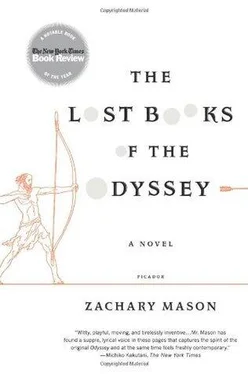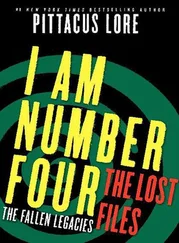*It is interesting to note that Odysseus’s description of Helen consists mostly of attributes characteristic of Pallas Athena. Mentor was one of Athena’s preferred manifestations — one wonders whether she was aware of what Odysseus saw and whether even her fortress-like heart was moved a little.
Pale *lived by the sea in an open house on high posts that the tide ran through. The house was full of light and while he had mother and sister, canoe, sun and sea he wanted for nothing but his father, who had been away at war in the East since time out of mind.
Every morning his sister dove for mussels in the shallows of the bay, his mother spun wool on her wheel, and he went fishing in his canoe. When the sun was straight overhead his mother put down her work and peered into the East in hopes of seeing her husband returning, but she only ever saw water and air. In the afternoon Pale and his sister walked in the forest or listened to their mother tell tales of the bright lands to the west where virtue flowed down from the tops of the mountains and evil washed in from the sea.
One day in an infinite succession of otherwise identical days, the sky turned dark and the sea was angry and the air was like smoke. Pale was fishing in his canoe and as he was a brave man he kept casting his net, though he could not see out of the troughs of the waves. A great swell came out of the east and bore him up and up till he thought all the water in the sea must be flowing beneath him, and then it dropped him down. When he and his canoe bobbed to the surface, an evil intuition sent him racing toward shore over water that ran black and full of weed. The beach where his house had been was swept clean, nothing there but smooth, damp, white sand. The forest above the house was gone too, dying fish and seaweed in its place, uprooted trees bobbing in the turbulent surf. He paddled frantically here and there looking for his mother and sister, thinking he saw hair floating on the surface and racing over only to find a tangle of kelp or a broken gull.
He was determined, but on the third day he gave up. He lay on his back and let the canoe drift, eyes closed, swimming in the blood-red light of the sun. At sunset he sighed and turned his back on the empty coast. He had heard that thirteen days’ paddle to the south was an island where one-eyed wild men lived in caves, and he had heard that inland a track led through the forest and over the hills to a city with a high round wall where the king had never seen the sea, but he let night fall and set his course by the stars for the bright lands in the west, for if his mother and sister had gone anywhere it would be there, to bathe in the springs at the top of the mountains. The water glowed blue with each paddle stroke and he sang a wordless song through the turning of the night.
Toward dawn, he came to an islet with a spring and beached there to sleep through the day. He flipped over his canoe, crawled into its shade and was closing his eyes when he heard a hoarse crying. He sprang up and found a small seal floating in the tide, moving weakly. “Perhaps your family misses you, seal,” he said and dragged it out of the water above the high tide mark into the shade of a surviving palm. He went to sleep and dreamed that he saw a slight woman with pitch black hair and bright black eyes smiling down at him. At dusk he woke and the seal was gone.
He filled his water jug in the spring, oriented by the dolphin constellation, and headed west. In the late watches of the night he thought he saw the seal again, keeping pace with him, but the seal, if there was a seal, soon dove and was seen no more.
By the tenth night he was out of water and bone-weary and there had been no land in a long time. Though it was hours till dawn he put up his paddle and rested, soothed by the swell and the wind. There was a splashing by the side of the canoe. He looked over and saw the young woman holding the side, smiling up at him, her mass of wet hair shining in the starlight. She said, “Where are you going, stranger so far from home?” “To the bright lands in the west,” he replied, in what voice he had left, “where virtue flows from the tops of the mountains.” “And evil flows in from the ocean,” said she. “I know the place well, and you’ll never get there in your little canoe. All you’ll find is ocean and sky and never a sight of an island though you break your back with paddling. But I know the way and I can take you there, so take my hand and come along.” He put down his paddle, which had grown very heavy, took her hand, and went over the side with her, disappearing into the warm sea with scarcely a ripple.
What happened then? In the end did his clean white bones float slowly down to settle on the abyssal plain, or did he marry her and become a prince of the seals, living in the deep and forgetting his life as a man, or did he one day drag himself through the surf onto what his heart knew at once for the bright lands? The sea does not tell.
*There is a tradition, albeit present in only a few fragmentary sources, that Odysseus’s son Telemachus was pale to the point of albinism.
Odysseus’s ship rose in the water as his men carried the stolen treasure of many cities from its hold to his new hall. Alcinous, the island’s king, stood by watching, well pleased with his son-in-law-to-be. As soon as Odysseus had unloaded the ship he hitched a team of oxen to it with strong cables and dragged it up onto the beach. He took a crackling pine torch and, heart sinking despite his resolve, held it to the beached ship’s flank, but the sea-worn timber would not catch and the sun was setting so he went home. The next day was his wedding day, and then it took weeks to set his new house and lands in order, and by then the wind had covered the ship with sand and it was easily ignored.
Staying on the island had been a natural decision, reached in the course of all the frigid nights guiding the ship by the faint luminescence of the waves and the occasional glimpse of the moon through ragged cirrus. Somewhere in the Middle Sea the stars Odysseus had relied on for navigation had changed like ships come unmoored and after that he was altogether lost. Privately terrified, Odysseus had confidently told his men that this ominous event was just the gods translating new heroes into the sidereal sphere after the war in Troy. He pointed up and pretended to recognize Patroclus and Achilles (their constellations intertwined), Hector and even great, sad Ajax of Telamon. Then there were the seasons that did not seem to come when expected, though no one managed to keep an exact count of the days — hash marks on the hull rotted, a jar full of white stones was shattered in a storm, knotted leather threads turned into damp-swollen, hopelessly entangled snarls.
They saw many islands and many marvels, most of them inimical. One evening a sickly green radiance passed below them, deep among the waves, and the lookout swore it had had the shape of a man. On another night all their fires went out and every light, from the stars to the moon to the glow of the waves, disappeared in an instant. In total darkness they tried to turn the ship around, botched it, and before an hour had passed they were expecting to drift forever. Odysseus tossed a coin over the bow and there was no splash. They held themselves together in the dark by sitting on deck and telling stories, each in turn. They were never more surprised than when the sun rose.
Now and then they found an island set down on their map. Invariably it had just been visited by Phoenician or Cretan merchants, elements of the world they knew, and Odysseus and his men took heart, got directions and advice, and sailed off in the expectation of finding familiar lands that never, in the event, materialized. And so, gradually, the longing for Ithaca’s shores was supplanted by the wish for any kind of an end to wandering.
Читать дальше












